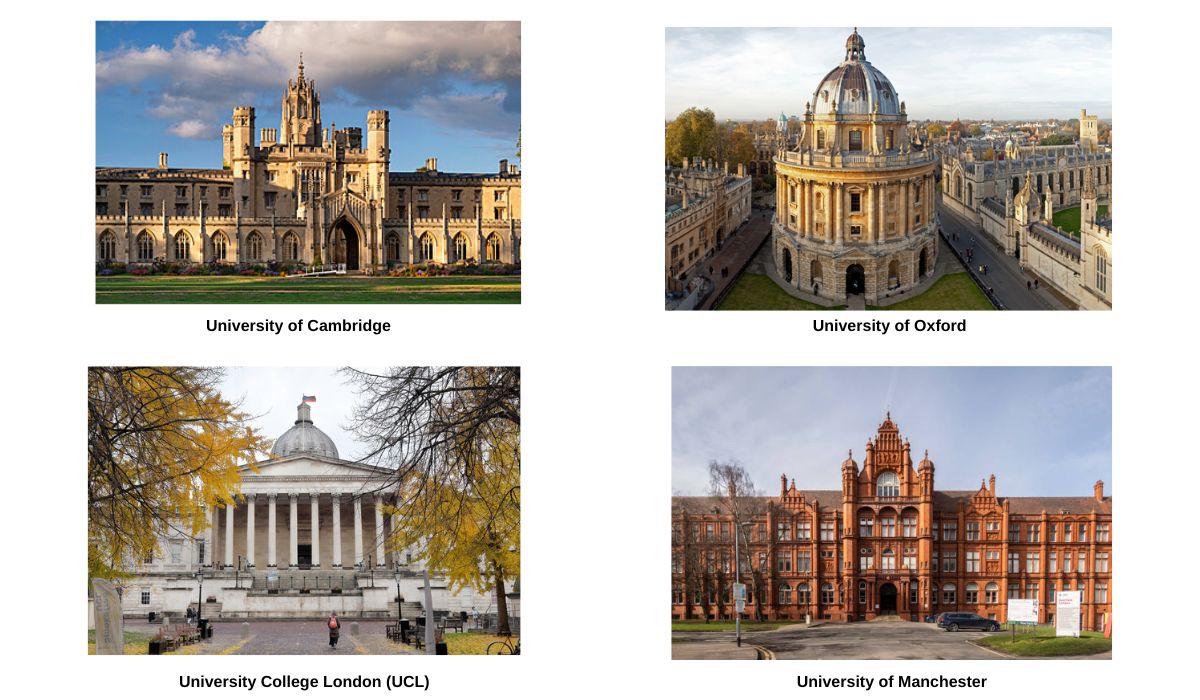Did you know… each year, thousands of international doctors go to the UK to pursue their postgraduate studies. UK has a reputation for structured pathways, high quality of education, lifestyle and clinical training along with a globally respected qualification.
The UK has been a preferred destination for International doctors for a very long time.
If you landed up on this blog, you might be an MBBS graduate or someone who is pursuing a career in it, and seeking a medical PG in the UK. This blog is your complete roadmap.
Why Choose the UK for Medical PG?
Choosing to pursue Medical PG in the UK is the best decision you can make for your career. Here are some reasons why the UK is the best choice for International Medical candidates.
World-Class Education: UK is home to many top medical colleges and universities. You will be taught by top-tier faculty and a comprehensive syllabus that will prepare you for a successful career ahead.
Clinical Exposure: UK offers exposure in a clinical setting with hands-on training experience in their world-class hospitals and healthcare institutions. This provides an opportunity to enhance your clinical skills.
Global Recognition: A degree from the UK is globally recognised and reputed. Graduates from the UK have a global reputation.
Who’s Eligible?
Let’s find out about the eligibility criteria you have to fulfil to go to the UK.
- Your MBBS degree should be from a recognized university.
- You need to complete a 12-month internship in your home country.
- English proficiency test is important, you should score at least band 7 overall or above in IELTS or a Grade B in OET
- A Certificate of Good Standing from the NMC.
UK PG Medical Pathways for International MBBS Graduates
You might think that there may be only one pathway. It is not true. Depending on your long-term aim and goals. You can choose the pathway that suits you best.
1. PLAB Route
Known as the Professional and Linguistic Assessments Board (PLAB). It is an exam for international MBBS graduates. The exam is designed as per the standards of the UK medical system.
Steps:
- Take IELTS/OET to prove English proficiency.
- Register and clear PLAB 1.
- Fly to the UK to appear for PLAB 2, a practical OSCE exam.
- Apply for GMC registration using PLAB pass.
Completing the PLAB exam allows doctors to apply for GMC registration and pursue postgraduate medical training in the UK.
2. The Without-PLAB Pathway: MRCP & MRCS Route
There is another route known as the MRCP & MRCS Route. MRCP is for medicine and MRCS is for surgery. This exam route provides the GMC registration.
MRCP (Membership of the Royal College of Physicians):
- This is ideal for those who want to do internal medicine specialization.
- A minimum of 12 months of experience is required after you graduate from MBBS.
Exam Structure:
- Part 1: In part 1 of the exam, there will be MCQ based.
- Part 2: In part 2, there will be clinical scenario-based questions
MRCS (Membership of the Royal College of Surgeons):
- Required for surgical training (excluding ophthalmology and obstetrics).
- Eligibility: After the first year of core surgical training or equivalent.
- Exam Structure:
- Part A: Written MCQs on surgical principles and anatomy.
- Part B: OSCE covering clinical skills and patient interaction.
Once you pass all parts of either exam, you can directly apply for GMC registration.
3. University PG (MD/MS) Degrees
UK universities offer clinical postgraduate courses like MD or MS.
Entry is through IELTS + MBBS + Interview.
- Fees are high (up to ₹45 lakhs/year).
- These do not directly lead to GMC Speciality registration unless followed by clinical practice.
Top UK Universities Offering Medical PG Programmes
If you're planning to pursue a university-based MD, MS, or MPH in the UK, here are some of the leading institutions that welcome international medical graduates, including those from India:
| University | Popular PG Courses |
| University of Oxford | MD, Surgery, Clinical Medicine |
| University of Cambridge | MD, MS (Surgery), Public Health |
| Imperial College London | MPH, MD in Clinical Specialties |
| University College London (UCL) | MSc Surgery, Internal Medicine |
| King’s College London | MD, MS (ENT, Cardio, Neuro), MPH |
| University of Edinburgh | MS in Surgical Sciences, MPH |
| University of Glasgow | Public Health, MD Internal Med |
| University of Manchester | MD (Diabetes, Oncology), MPH |
| Queen Mary University of London | Gastroenterology, MPH, Global Health |

Salary Structure for Doctors in the UK
Here's a clear salary breakdown based on NHS pay bands:
| Role/Training Level | Grade | Annual Salary (GBP) | Annual Salary (INR approx.) |
| Foundation Year 1 (FY1) | Band F1 | £32,398 | ₹34–35 lakh |
| Foundation Year 2 (FY2) | Band F2 | £37,303 | ₹39–40 lakh |
| Junior Doctor (Post PLAB/SHO) | CT1/ST1 | £41,582 | ₹44 lakh |
| Core Training Year 2 | CT2/ST2 | £47,905 | ₹50 lakh |
| Speciality Registrar (ST3–ST7) | ST3+ | £55,329 – £63,152 | ₹57–65 lakh |
| Consultant | Consultant | £88,000 – £119,000 | ₹92 lakh – ₹1.25 crore |
These salaries increase with experience and training level, and many doctors also supplement their income through locum (part-time) shifts.
MD & MS in the UK: Course Overview and Salary Breakdown
Master’s in Surgery (MS)
A highly competitive and prestigious course, the MS in the UK allows doctors to deepen their surgical expertise while gaining hands-on NHS experience. The programme blends clinical exposure, simulation labs, and surgical research.
Top Specializations and Expected Salaries:
| Specialization | Average Annual Salary (GBP) | Average Annual Salary (INR) |
| Orthopaedic Surgery | £43,000 – £97,000 | ₹45 lakh – ₹1.02 crore |
| Ophthalmology | £130,000 | ₹1.37 crore |
| Urology | £36,000 – £42,000 | ₹38 – ₹44 lakh |
| Gastrointestinal Surgery | £102,000 | ₹1.07 crore |
| ENT Surgery | £45,000 – £92,000 | ₹47 – ₹98 lakhs |
| Vascular Surgery | £43,500 | ₹46 lakhs |
Doctor of Medicine (MD)
The MD degree in the UK is both research-intensive and clinically rigorous. It’s designed for doctors seeking deeper knowledge in their Speciality
Top Specializations and Expected Salaries:
| Specialization | Average Annual Salary (GBP) | Average Annual Salary (INR) |
| Diabetes | £92,000 – £110,000 | ₹97 lakh – ₹1.16 crore |
| Cardiovascular Medicine | £103,000 | ₹1.09 crore |
| Psychiatry | £108,000 – £144,000 | ₹1.12 crore – ₹1.49 crore |
| Internal Medicine | £120,000 – £252,000 | ₹1.24 crore – ₹2.61 crore |
| Gastroenterology | £96,000 – £132,000 | ₹99 lakh – ₹1.36 crore |
| Dermatology | £162,000 | ₹1.71 crore |
These degrees also open doors to academic consultant roles and international medical boards.
Cost of Pursuing PG in the UK (for Indian Doctors)
| Expense Item | Estimated Cost (GBP) | INR Equivalent (approx.) |
| IELTS/OET | £200–£350 | ₹21,000–₹37,000 |
| PLAB 1 | £255 | ₹26,800 |
| PLAB 2 | £934 | ₹98,000 |
| GMC Registration | £161–£406 | ₹17,000–₹43,000 |
| UK Visa & Health Surcharge | £1,200–£1,800 | ₹1.3–₹1.9 lakh |
| Travel + Stay (PLAB 2) | £1,500–£2,500 | ₹1.6–₹2.7 lakh |
| Living Cost (annual, UK) | £12,000–£18,000 | ₹13–19 lakh |
| Tuition Fee (if university PG) | £30,000–£45,000 | ₹32–48 lakh |
The PLAB route is the most affordable, especially if you directly enter into NHS employment. The university route can be expensive without scholarships.
How Long Does UK Medical PG Take?
| Stage | Duration |
| PLAB + Registration | 6–12 months |
| NHS Work (Pre-training) | 1–2 years |
| Core Training (CT1–CT2) | 2 years |
| Speciality Training (ST3–ST7) | 4–6 years |
| CCT Award (Consultant Level) | 6–8 years total from NHS entry |
Is It Worth It?
For International Doctors who move to the UK to pursue their PG journey. Let us tell you it’s worth it. You are investing in a high quality of life, with better work life balance and a high pay.
Whatever path you are planning to take, make sure you have financial preparation, and make constant efforts to go through this process, and you’ll be successful in no time.





